
From the 2025 Annual Conference in Atlanta, GA, CAPCSD is presenting the 2025 Virtual Conference on April 24-25, 2025. This virtual conference will feature 10 hours of online sessions by invited speakers and selected presenters on the conference theme, Advancing Teaching and Leadership.
Note the changes from 2024:
- Increase from 0.60 CEUs to 1.0 CEUs.
- In 2025, the virtual conference will be available live only!
- As most of these sessions are also breakout sessions during the annual conference, there will not be an Add-On option for those attending the annual conference.
- The virtual conference will not be available on-demand.
Description
Bringing together educators and leaders in Communication Sciences and Disorders (CSD), this virtual conference will explore innovations in teaching and learning, as well as strategies for fostering inclusion and technological advancement in education. Conference sessions will highlight ways to advance CSD education by exploring alternative grading strategies, using artificial intelligence ethically, and integrating public health concepts into our courses. Attendees will gain practical insights into adapting teaching methods, leveraging emerging tools, and preparing students for the evolving demands of professional practice. Other sessions will focus on creating equitable and inclusive learning environments by addressing ableism, supporting neurodivergent and multigenerational students, and adopting asset-based practices to meet the diverse needs of all learners. Join us in shaping an inclusive and forward-thinking future for CSD education!
Agenda
Thursday, April 24, 2025
11:00 AM - 12:00 PM ET - Welcome by CAPCSD President Katie Strong
Reconstructing Equitable Environments by Addressing Ableism in CSD Education (0.10 ASHA & AAA CEUs; Qualifies for ASHA DEI credit)
12:00 - 12:15 PM ET - BREAK
12:15 - 1:15 PM ET - Alternative Grading Strategies: Enhance Student Engagement and Propel Your Students into Advanced Learning (0.10 ASHA & AAA CEUs)
1:15 - 2:00 PM ET - LUNCH BREAK
2:00 - 3:00 PM ET - Recognizing and Reaching Multigenerational Students (0.10 ASHA & AAA CEUs)
3:00 - 3:15 PM ET - BREAK
3:15 - 4:15 PM ET - Extending Beyond Health Literacy: Enhancing Public Health Concepts in CSD Curriculum (0.10 ASHA & AAA CEUs)
4:15 - 4:30 PM ET - BREAK
4:30 - 5:30 PM ET - Trauma Triggers in Student Experiences: Strategies for Supporting Students (0.10 ASHA & AAA CEUs)
Friday, April 25, 2025
11:00 - 12:00 PM ET - Welcome by CAPCSD President-Elect Tricia Montgomery
Asset-Based and Inclusive Practices to Support Neurodivergent Students (0.10 ASHA & AAA CEUs; Qualifies for ASHA DEI credit)
12:00 - 12:15 PM ET - BREAK
12:15 - 1:15 PM ET - Teaching Pedagogy in Higher Education (0.10 ASHA & AAA CEUs)
1:15 - 2:00 PM ET - LUNCH BREAK
2:00 - 3:00 PM ET - Navigating AI in CSD Programs: Developing Critical Thinking and Ethical Use of AI Tools (0.10 ASHA & AAA CEUs; Qualifies for ASHA Ethics credit)
3:00 - 3:15 PM ET - BREAK
3:15 - 4:15 PM ET - Supporting Integration of AI in Health Professions Education (0.10 ASHA & AAA CEUs)
4:15 - 4:30 PM ET - BREAK
4:30 - 5:30 PM ET - Leadership Training Practices in Graduate Communication Sciences and Disorders Programs (0.10 ASHA & AAA CEUs)
CAPCSD Member
CAPCSD Affiliate
CAPCSD Nonmember
Session Overview
Reconstructing Equitable Environments by Addressing Ableism in CSD Education
This session qualifies for ASHA's Diversity, Equity, and Inclusion in Education, Training, Service Delivery, Public Policy requirement.
This session will explore the foundational understanding of equity in CSD and provide an advocacy framework to empower educators to actively champion justice and accessibility for individuals with disabilities. Strategies for including the essential components of accessibility to promote inclusive policies, curricula, and clinical education will be discussed, along with ethical considerations related to fairness, accessibility accommodations, and inclusivity across the classroom and clinic. Furthermore, participants will learn specific strategies to advocate for marginalized students with disabilities at the program, department, and university levels.
Learning Objectives:
- Define equity and inclusion for students with disabilities in the context of CSD education.
- Identify key strategies for accessibility accommodations in curricula, clinical education, and policies.
- Advocate for inclusion and belonging within educational and clinical environments.
Alternative Grading Strategies: Enhance Student Engagement and Propel Your Students into Advanced Learning
In this workshop seminar, participants will apply alternative grading strategies to an existing syllabus, assignment, or grading rubric for a course they teach. After a brief overview of alternative grading strategies and a summary of the benefits to both student and instructor, the participants will be guided through steps 1-4 of the Grading for Growth process to analyze course materials for ways to incorporate alternative grading. The presenters will provide feedback and their own experiences to help guide the participants. Participants will leave the workshop with tangible suggestions for incorporating the techniques into their coursework as well as a new network of colleagues for continued support during implementation.
Learning Objectives:
- Describe the benefits of employing alternative grading strategies for instructors and students.
- Apply an alternative grading strategy (e.g., clearly defined standards, helpful feedback, marks indicate progress, and reassessment without penalty) to a current course or assignment.
- Modify an existing grading procedure or course assignment to align with alternative grading.
Recognizing and Reaching Multigenerational Students
The modern educational landscape is increasingly characterized by multigenerational classrooms, where diverse generational cohorts coexist and learn together. This session will examine the pedagogical strategies and challenges associated with teaching multigenerational learners. It will highlight the importance of recognizing and respecting the distinct values, experiences, work habits, and communication styles of each generation. A variety of flexible and inclusive teaching approaches that accommodate the varied learning styles will be discussed.
Learning Objectives:
- Compare and contrast the unique characteristics and learning preferences of different generations in the educational environment.
- Discuss teaching methods to suit the diverse needs and expectation of the multigenerational student.
- Develop ideas for creating an inclusive classroom atmosphere that values and integrates the contributions of all members.
Extending Beyond Health Literacy: Enhancing Public Health Concepts in CSD Curriculum
Health literacy is an important concept within public health and in communication sciences and disorders (CSD) domains. Other public health concepts can complement and inform clinical practice, training, and research in CSD. This presentation highlights the importance of integrating health literacy and other public health concepts (e.g., disease prevention, health promotion, population health, social determinants of health) into the CSD curriculum. Presenters will compare public health accreditation standards to those of Audiology and Speech-Language Pathology and describe the value of public health in CSD education. Participants will explore effective curriculum design methods that align with public health priorities and educational standards. Presenters will engage attendees in discussion on how to enhance student engagement, critical thinking, and application of public health principles in diverse educational settings.
Learning Objectives:
- Explain the significance of health literacy, disease prevention, health promotion, population health, social determinants of health, and other concepts within the public health framework and their relevance to communication disorders.
- Evaluate strategies and methodologies for designing and implementing curriculum enhancements that prioritize communication public health.
- Apply practical insights gained from the presentation to enhance student engagement, foster critical thinking skills, and effectively apply public health principles.
Trauma Triggers in Student Experiences: Strategies for Supporting Students
The rigorous expectations of CSD programs and clinical practices can inadvertently trigger trauma responses in students with a history of adverse experiences. This session will draw on current research to outline strategies for identifying and mitigating such triggers within educational and clinical settings and will emphasize the importance of creating a trauma-informed environment that is sensitive to the needs of all students.
Learning Objectives:
- Identify signs of trauma in students and describe the potential impact on their academic and clinical performance.
- Develop the skills to create and maintain a supportive learning environment that is responsive to the needs of students experiencing trauma.
- Discuss strategies to assist students in managing trauma triggers.
Asset-Based and Inclusive Practices to Support Neurodivergent Students
This session qualifies for ASHA's Diversity, Equity, and Inclusion in Education, Training, Service Delivery, Public Policy requirement.
College campuses are increasingly neurodiverse, but low rates of enrollment and graduation rates for neurodivergent students in Communication Sciences and Disorders point to systemic barriers to their success. In this interactive session, participants will unpack inherited mindsets around neurodiversity and, more broadly, notions of what learning should look like. We will contrast marginalizing attitudes still prevalent in education with the asset-based neurodiversity paradigm, and discuss tangible steps instructors can take to affirm and support the success of neurodivergent learners. The inclusive teaching strategies we enact with neurodivergent students in mind will help us better welcome and reach the wide variety of learners in our classes.
Learning Objectives:
- Contrast ableist, deficit-based views of learning with empathetic and asset-based mindsets.
- Identify common barriers to success for neurodivergent college students.
- Summarize inclusive teaching strategies that support the success of neurodivergent students in didactic and clinical courses.
Teaching Pedagogy in Higher Education
Teaching pedagogy in higher education is an evolving field that requires a dynamic approach to meet the needs of diverse learners. This session will explore innovative pedagogical strategies that are being implemented in CSD programs to enhance student learning and professional development and includes the integration of evidence-based practice, interprofessional education, and technology-enhanced learning to prepare students for the complexities of clinical practice. Faculty development in fostering effective teaching methodologies and the importance of aligning pedagogical approaches with the latest research in CSD will be discussed.
Learning Objectives:
- State how to incorporate innovative teaching strategies to engage learners in CSD programs.
- Demonstrate proficiency in utilizing technology to enhance learning and simulate real-world clinical scenarios in CSD education.
- Apply evidence-based pedagogical approaches to improve teaching effectiveness and student learning outcomes in CSD higher education.
Navigating AI in CSD Programs: Developing Critical Thinking and Ethical Use of AI Tools
This session qualifies for ASHA's Ethics requirement.
AI tools are available to students and can be used even when forbidden by an instructor, program, or university. CSD programs can disallow use of AI tools or they can facilitate responsible use of these tools and ensure students develop skills to identify misinformation. We present four academic assignments in three different courses completed by students in two graduate SLP cohorts. The assignments presented AI generated essays on course-related topics. Students researched claims made in the essays and found peer-reviewed sources to support or refute each claim. Students also wrote reflections focused on ethical use of AI tools and the importance of developing critical thinking and research skills needed to substantiate accurate information and identify misinformation related to a variety of clinical topics.
Learning Objectives:
- Describe strategies and assignments to help students critically evaluate AI-generated claims, use peer-reviewed literature, promote ethical AI use, and engage in discussions on AI's academic and clinical implications.
- Discuss the rationale for providing students with AI generated output and asking them to find sources to verify the accuracy of that AI generated claims.
- Explain how incorporating a reflection component in assignments can deepen students' understanding of the assignment's goals and increase their awareness of their own learning and professional development.
Supporting Integration of AI in Health Professions Education
As artificial intelligence (AI) transforms healthcare, preparing future professionals to use AI effectively is essential. This presentation explores how CSD educators can equip students to become knowledgeable AI users and contributors to advancing healthcare. Based on surveys of faculty and students in speech-language pathology, audiology, and other health professions, we will discuss perceptions of AI, current knowledge gaps, and strategies for integrating AI into curricula. The session will highlight the differing needs of undergraduate and graduate students, ranging from academic support to clinical applications, and present professional development efforts focused on leveraging AI while maintaining academic integrity. Participants will leave with actionable strategies for incorporating AI into their teaching and preparing graduates for AI-driven healthcare environments.
Learning Objectives:
- Identify ways that artificial intelligence is transforming healthcare.
- Compare and contrast the differing perceptions of AI among faculty, undergraduate and graduate students.
- Experiment with strategies for incorporating AI into teaching and preparing graduates for AI-driven healthcare environments.
Leadership Training Practices in Graduate Communication Sciences and Disorders Programs
Leadership training promotes student engagement, fosters independence, and establishes professionalism that requires further exploration in Communication Sciences and Disorders (CSD). A survey was sent to CSD programs across the nation to determine what, if any, leadership training they use to train the next generation of speech-language pathologists. This session will present data from the survey providing potential guidance for areas of leadership training that can be incorporated into already existing programmatic designs and curricular structures to better prepare our students for the future.
Learning Objectives:
- Define leadership as action through the dual lens of situational and servant leadership.
- Identify leadership training practices that they already implement in their programs and learn how to engineer them to achieve the most benefit.
- Describe new leadership training practices they will propose in their programs and brainstorm how they can fit selected practices into an existing curriculum.
ASHA CEUs

AAA CEUs
CAPCSD is approved by the American Academy of Audiology to offer Academy CEUs for this activity. The program is worth a maximum of 1.0 CEUs. Academy approval of this continuing education activity is based on course content only and does not imply endorsement of course content, specific products, or clinical procedure, or adherence of the event to the Academy’s Code of Ethics. Any views that are presented are those of the presenter/CE Provider and not necessarily of the American Academy of Audiology.
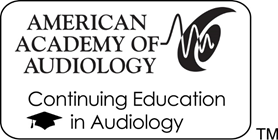

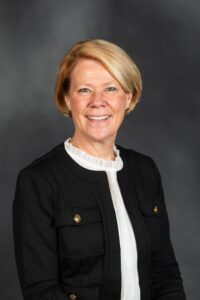 Author and Presenter: Tena L. McNamara, Au.D., CCC-A/SLP
Author and Presenter: Tena L. McNamara, Au.D., CCC-A/SLP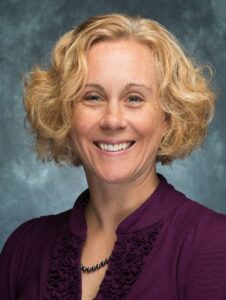
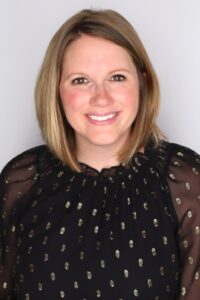
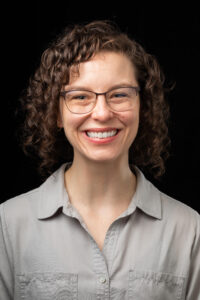
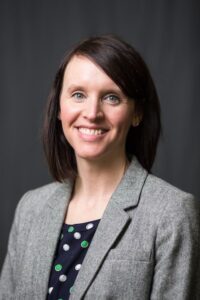
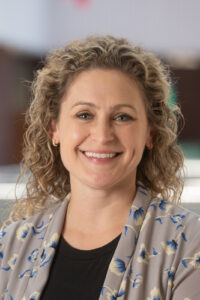
 Author: Patricia Geels, Ph.D.
Author: Patricia Geels, Ph.D.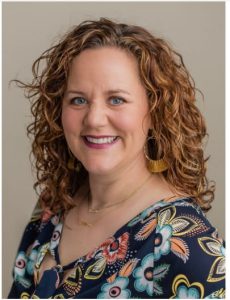
 Author & Presenter: Jessica Jocelyn, Ph.D., CCC-SLP
Author & Presenter: Jessica Jocelyn, Ph.D., CCC-SLP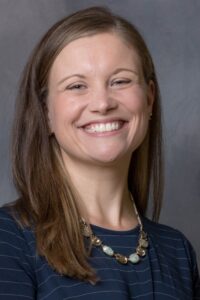 Author and Presenter: Teresa Anthony, MHA, MA, CCC-SLP, FNAP
Author and Presenter: Teresa Anthony, MHA, MA, CCC-SLP, FNAP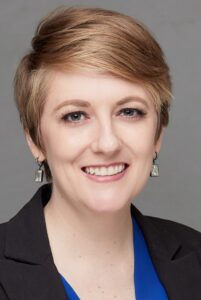
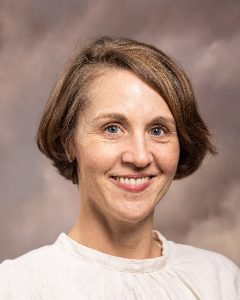 Author and Presenter: April Garrity, Ph.D., CCC-SLP
Author and Presenter: April Garrity, Ph.D., CCC-SLP Author and Presenter: Madhu Sundarrajan, Ph.D., CCC-SLP
Author and Presenter: Madhu Sundarrajan, Ph.D., CCC-SLP Author: Leslie Bayers, Ph.D.
Author: Leslie Bayers, Ph.D. Author and Presenter: Jennifer Friberg, Ed.D.
Author and Presenter: Jennifer Friberg, Ed.D. Author and Presenter: Christine Brennan, Ph.D., CCC-SLP
Author and Presenter: Christine Brennan, Ph.D., CCC-SLP
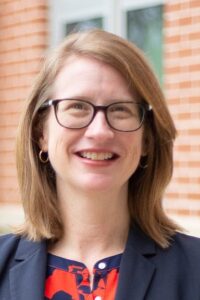 Author and Presenter: Susan Gordon-Hickey, Au.D., Ph.D.
Author and Presenter: Susan Gordon-Hickey, Au.D., Ph.D.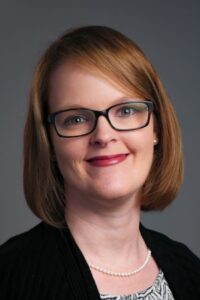 Author and Presenter: Tara Davis, Ph.D., CCC-A
Author and Presenter: Tara Davis, Ph.D., CCC-A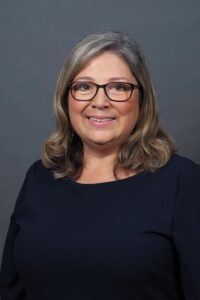 Author: Catherine Cooper, M.S., R.T. (R)(CT)(BD)(ARRT)
Author: Catherine Cooper, M.S., R.T. (R)(CT)(BD)(ARRT) Author: Missy Curtis, M.S., R.T. (R)(CT)(ARRT)(CNMT)(NMTCB)
Author: Missy Curtis, M.S., R.T. (R)(CT)(ARRT)(CNMT)(NMTCB) Author: Preston Warren, DPT
Author: Preston Warren, DPT Author and Presenter: Kelly Rutherford, Ed.D., CCC-SLP
Author and Presenter: Kelly Rutherford, Ed.D., CCC-SLP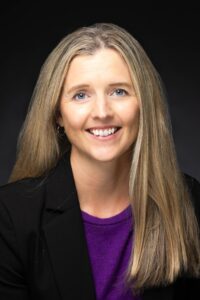 Author and Presenter: Sandra Kemper, Ed.D., CCC-SLP
Author and Presenter: Sandra Kemper, Ed.D., CCC-SLP